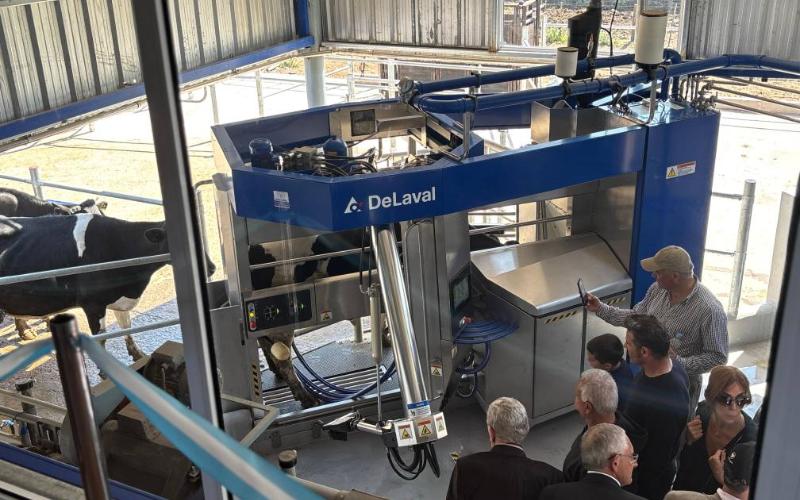From Rural Classroom to Robotic Dairy: Venado Tuerto as a Hub of Innovation

In a pioneering initiative in Argentina, the Centro Agrotécnico Regional (CAR) in Venado Tuerto, Santa Fe, has installed the first school-integrated robotic dairy. This proposal aims to fuse learning, technology, and dairy production within a singular environment.
This project is the result of an alliance between entrepreneurs, local producers, and technical leaders, aiming to familiarize students with the technology that defines modern dairy farming. José María Piccioni, one of the project's promoters, stated that "students need to be trained with what's coming, not with what has passed."
The robotic dairy is equipped with cutting-edge technology: artificial intelligence, sensors, mechanical arms, and electronic ear tags for individual cow recognition. Trained cows can enter the system voluntarily for milking, while the system monitors health parameters and analyzes milk quality in real-time. The installation accommodates 106 to 110 animals across two modules with the capacity for triple daily milking, improving efficiency by 10%, enhancing milk quality, and reinforcing animal welfare and traceability practices.
However, the dairy is more than just modern equipment; it functions as a "live classroom." Students also learn manual and traditional milking alongside the robotic processes, blending tradition with technology. The school incorporates dairy processing workshops, teaching cheese, mozzarella, and artisanal product creation.
This approach enables students to gain technological knowledge. "With 50 animals, you can make your own cheese under your own brand," Piccioni noted, emphasizing the goal of equipping young people to produce, innovate, and start their own ventures in rural areas.
The inauguration was a significant event, attended by over 5,000 people including provincial authorities, entrepreneur Cristiano Rattazzi, comedian Luis Landriscina, producers, teachers, and families from the interior.
This educational-industrial project holds several key impacts: it trains skilled human resources capable of operating advanced technologies in the dairy sector, encourages youth to remain in rural areas by showcasing the quality employment available, connects innovation with real production rather than just theoretical concepts, and offers a replicable model in other regions for educational and productive integration.










